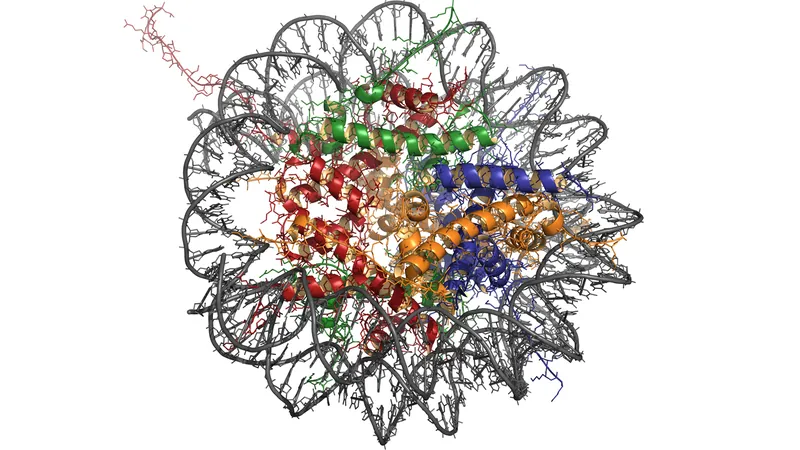Epigenetic alterations, which are one of the proposed reasons we age, are the changes to gene expression that our cells experience as we get older. These alterations harm the fundamental functions of our cells and can increase the risk of cancer and other age-related diseases.
Depending on your view, epigenetic alterations are either the result of age-related damage or a form of damage itself. The case could certainly be argued that it is both, with some forms of epigenetic alterations being a consequence and others playing a much more regulatory role in the aging process.
The author of the review that we want to highlight today takes the popular view that epigenetic alterations are for the most part a cause of aging and the changes they bring create some of the damage and dysfunction of aging.
The review takes a look at DNA methylation states and their relation to biological age, the link between age-related diseases and epigenetic changes, and how epigenetic changes exert an influence over a number of other aging processes, such as loss of proteostasis, the disruption of the protein building machinery in our cells; mitochondrial dysfunction, the decline of our cellular power plants; stem cell exhaustion, the depletion of the supply of replacement cells due to loss or inhibition of stem cells; and immunosenescence, the age-related decline of the immune system.
Aging, which is accompanied by decreased organ function and increased disease incidence, limits human lifespan and has attracted investigators for thousands of years. In recent decades, with the rapid development of biology, scientists have shown that epigenetic modifications, especially DNA methylation, are key regulators involved in this process. Regular fluctuations in global DNA methylation levels have been shown to accurately estimate biological age and disease prognosis. In this review, we discuss recent findings regarding the relationship between variations in DNA methylation level patterns and aging. In addition, we introduce the known mechanisms by which DNA methylation regulators affect aging and related diseases. As more studies uncover the mechanisms by which DNA methylation regulates aging, antiaging interventions and treatments for related diseases may be developed that enable human life extension.
The underlying mechanisms of aging have perplexed scientists for decades. Detailed evaluations of global DNA methylation changes have provided insights into the process of aging, with DNA methylation serving as a biomarker of biological age and a driving force of aging. Current findings should stimulate further discussion and experimentation based on epigenetic regulation in cell-, tissue-, and disease-specific aging models. Future studies focusing on the mechanisms by which specific parameters, such as stress, affect methylation patterns will uncover additional details of the aging process. Identification of the target genes modified by DNA methylation-related regulatory elements in aging individuals is highly informative to figure out the hormone-like effectors and signal pathways that mediate these alterations as well as related diseases. The interaction among epigenetic regulators during aging should also be highly valued. Further studies should focus on the cross-talk among these epigenetic regulators, such as DNA methylation, RNA methylation, histone methylation, and noncoding RNAs, which will aid in providing a full picture of epigenetics and aging. The results of such studies may pave the way for antiaging interventions as well as treatments for related diseases, enabling human life extension.
Conclusion
Epigenetic alterations are currently an area of increasing interest to researchers, and there are a number of companies, such as Turn.Bio, AgeX, and Iduna Therapeutics, that are working on approaches to reverse age-related epigenetic changes in order to make cells and tissues function in biologically younger ways.
We know that cells can be encouraged to act like younger cells when given the correct signaling environment, and there seems to be a strong epigenetic element to aging, which suggests that epigenetic alterations are a primary cause of aging. Therapies that can successfully reverse epigenetic alterations have the potential to address a wide range of aging processes, as this review touches upon.
The potential for partial cellular reprogramming to reverse cellular aging by reversing age-related epigenetic alterations could truly transform how we age, and while there is still much for us to learn, the possible rewards for success in this area are huge.




